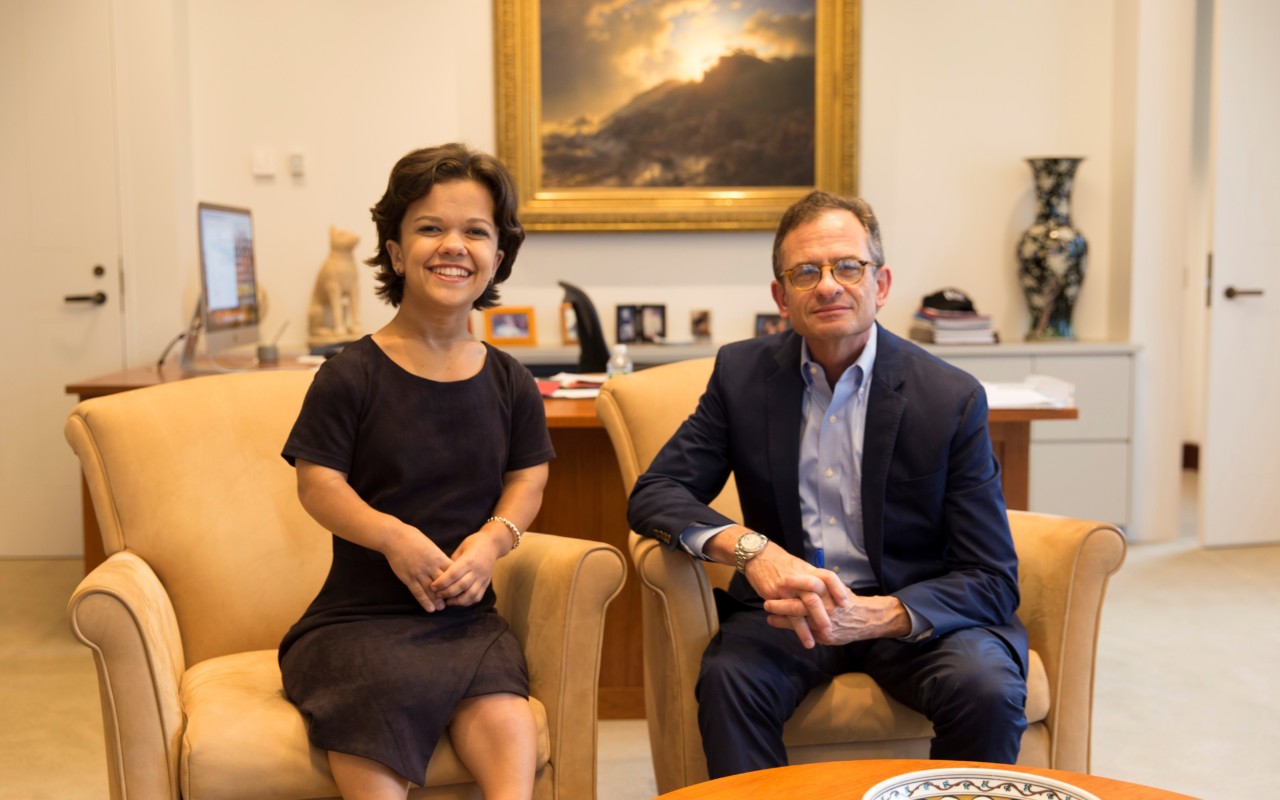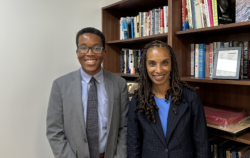
Ubben Posse Fellow Interviews: Dan Weiss
The Jeff Ubben Posse Fellows Program awards five exceptional Posse Scholars $10,000 each and the chance to spend 4-6 weeks during the summer shadowing and learning from a major industry leader. The interview below with Dan Weiss, CEO of the Metropolitan Museum of Art, was conducted by Posse Scholar Nicole Stallings-Blanche, now in her junior year at Syracuse University, who worked with Dan Weiss as a 2018 Jeff Ubben Posse Fellow. The conversation has been edited and condensed.
NICOLE: An individual’s upbringing impacts their development, personality and interests. Can you share what growing up was like for you?
DAN WEISS: I grew up in a very large, complicated family that had overarching values that brought us all together. Many of the people in my family were very interested in the arts and in the world of ideas. It was a disparate group of people who were both smart and curious. That exposed me to all kinds of things that expanded my horizons.
We are the opposite of a conventional nuclear family. My biological father mostly lived in other countries. As a child I would visit him, but I never lived with him. He was an artist. My earliest exposures to art were through the time I had with my father, which were among the happiest times I had as a child. I connected art with a pleasurable activity of being with someone who I wanted to be with.
“We all have passionate interests and commitments to do what we do.”
Nobody of my siblings were serious students in high school. We were all smart enough and we were all literate. Nobody was good at school. When I got to college, I bounced around until I figured out what I was interested in. It was only then that I became a student. That is true of most of my siblings. It is an unusual kind of formation, but we all came to have passionate interests and commitments to do what we do.
Do you see elements or characteristics from your parents in your leadership style?
I had the benefit of access to a variety of role models and influences growing up. My biological father had a corporate job that meant he was always going around the world. He loved to travel. He was very global, and I valued that. He loved art, it’s where I got that interest. He also had a very strong aesthetic sense where he paid attention to what was going on around him. I admired that greatly.
My mother is one of the smartest people I have ever known. She is extraordinarily well-read. She has a highly-developed critical sense, sometimes more than I would like. She has an ability to work with and read people. I get that from her.
My stepfather was also a remarkable individual. He was a lawyer, ran a business and was a university professor with a Ph.D. He had an extraordinary work ethic and he believed that you should pursue your passions. His philosophy was that if you work hard at everything you do, you are going to be successful. I got that from him.
I feel very lucky that I had access to wide-ranging parental influences that helped shape me in ways that a smaller, more limited family might not have provided.
Are there specific quotes that you remember being repeated to you by your parents?
There were very clear familial values that permeated everything. One was that education really matters. Even though my siblings and I were indifferent students in high school, not one of the four of us graduated in the upper half of our high school class. We then collectively went on to earn 14 college and advanced degrees. So the lessons about being serious about education and hard work came, but they took longer to take root.
As kids we were expected to work hard, and there was the idea that everybody works. As soon as you were old enough to get a job, you got one. So at 16 we all had jobs. We lived in an upper-middle-class family, there was plenty of money to go around, but working was always emphasized as an important as part of what we did.
The level of conversation in my family was always high and fast. If you were not witty and quick, you got left behind. I learned from my family how to communicate crisply and efficiently, with careful attention to my audience.
Another important value was generosity. No one in my family has ever had a disagreement for one second about money.
My family was created around the idea of family, but not the biology of family. I am not biologically related to many siblings that I have, but we shared a value system and a commitment to each other. We shared a belief in the importance of what we have together. That was a value, that family can be defined in different ways.
“Leadership is building community around shared goals and empowering others to accomplish them.”
You mentioned how you discovered what you were interested in as you got older. Did you have specific leadership roles as a young adult that came to influence your career trajectory?
Even today in the professional leadership role that I have, I always think of myself first and foremost as a big brother. That is the role that I played my whole life with a lot of younger siblings, empowering them and helping them to be successful, wanting what is best for them.
Then early in my career I had a significant leadership role at the Kennedy Center, as soon as I finished college at age 21 I was running a business. It felt very comfortable to me, because it was tied to the same idea of responsibility for the wellbeing of others. The idea of collectively creating goals that we can all work on to achieve.
That is what leadership ultimately is. It is building community around shared goals and empowering others to accomplish them.
What do you think are the most important decisions that you make at The Met? How do your decisions impact the longevity of this institution?
It is important for me to have a strong sense of the mission of this institution and how I can best advance that mission. In a leadership position, I help set a direction and empower others to work with me to realize that mission. I cannot do it all. What I try to do is to help build a team and support that team to row together towards a common goal that allows the institution to thrive. In the most immediate sense, that applies to the people that report to me, who run all the departments. But it also means creating an ethos and a culture that allows everyone to feel that their contributions are important, that they are valued and that they are accountable.
For this place to be the best it can be, everybody has to show up every day, not just some people. How do you as a leader convey that sense of importance to everybody on your team? Creating community and ways to empower that community is something I think about a lot.
Read More:
Ubben Posse Fellow Interviews: Satya Nadella
Ubben Posse Fellow Interviews: Ken Frazier
Ubben Posse Fellow Interviews: Hon. Patti Saris
Ubben Posse Fellow Interviews: Dr. Steven J. Corwin
Meet the 2018 Jeff Ubben Posse Fellows.

